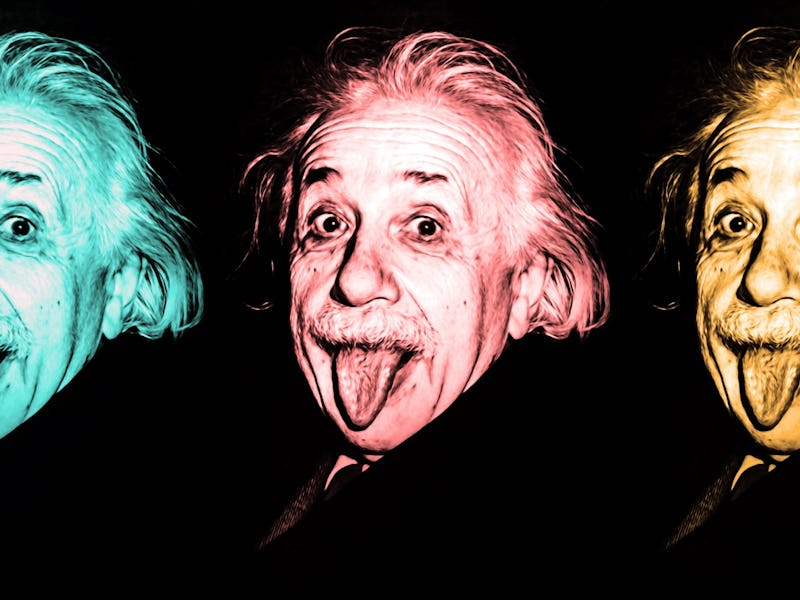Albert Einstein Could Be Just as Cruel as He Was Brilliant
The physicist was recently revealed to be a closeted racist.

Albert Einstein is synonymous with genius, and his legacy is omnipresent. He’s name-dropped in countless rap songs, and E=mc2 is considered one of the world’s most famous equations. He’s so revered, we put quotes he never said on motivational posters in elementary school classrooms. And now, we know he was a racist.
Even now, if I look to my right while I type this story, there’s a poster of him. He’s smiling coyly, and the description reads “Genius lies within.” But thanks to the recent publication of his private diaries from his travels in Asia, we now know that xenophobia lay within Einstein, too. He described the Chinese as “industrious, filthy, obtuse people,” including their children. He commented that Chinese women were indistinguishable from men, and wondered how they were able to seduce anyone into having children with them.
The man who infamously said “racism is a disease of white people” also said: “It would be a pity if these Chinese supplant all other races. For the likes of us the mere thought is unspeakably dreary.” The senior editor of the Einstein Papers Project wrote, according to The Guardian these revelations are “pretty unpleasant,” but let’s be sure to call them what they are: racist and indicative of a white supremacist ideology.
But this isn’t the first time Einstein’s personal writings have illustrated an ignorant, selfish worldview. The New York Times first dissected his misogyny over twenty years ago, revealing that he treated his wife, a brilliant mathematician, with the disdain one would reserve for an incompetent underling (but really, no one should treat anyone like Einstein treated Mileva Marić.
“A. You will see to it (1) that my clothes and linen are kept in order, (2) that I am served three regular meals a day in my room. B. You will renounce all personal relations with me, except when these are required to keep up social appearances,” Einstein wrote in a list of demands for his first wife. “You will expect no affection from me… You must leave my bedroom or study at once without protesting when I ask you to.”
You could argue, as others have, that Einstein was a product of his time. I’d argue, however, that you’d be wrong. Einstein was no ordinary man of his era. He was a revolutionary thinker across multiple disciplines, an immigrant, a civil rights activist in the company of his friend W. E. B. Du Bois, and a victim of Nazi propoganda. He should have known better. He should have been better.
It’s important that we don’t justify Einstein’s private thoughts and actions simply because he was an innovator in his field. We should recognize that it is views like those expressed in his journal that actively contribute to oppression, then and certainly today. Einstein made extraordinary advancements in the field of physics, but it’s clear one can be both brilliant and bigoted. It’s also possible to admire Einstein’s achievements while denouncing his expressed xenophobia and misogyny.